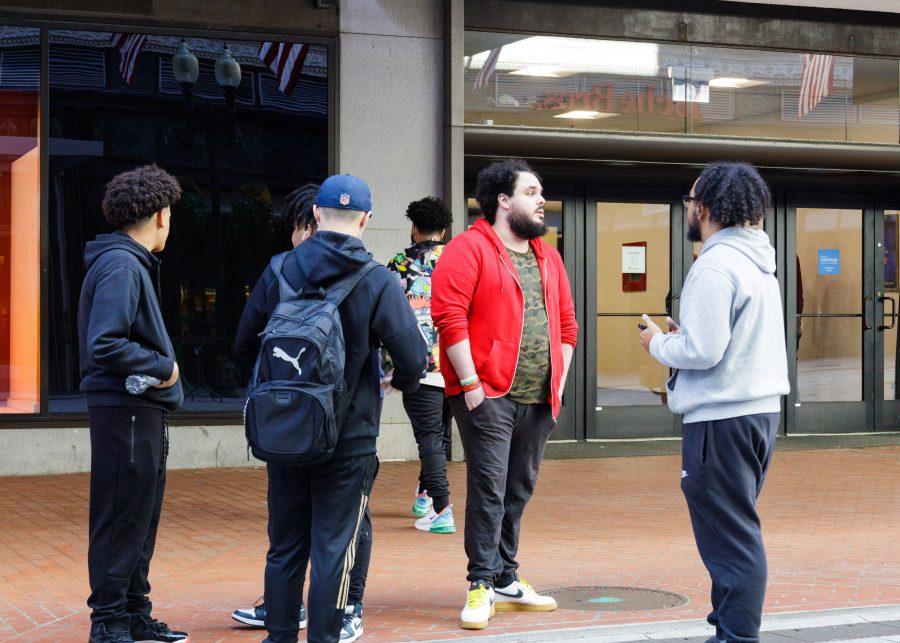All across the globe, umpteen cases of physical and mental assault are recorded every day. According to a study by California Polytechnic Humbolt, an estimated 91 percent of victims of rape and sexual assault are female and nine percent are male. Now, it is obvious what everyone’s thinking—women are being brutally victimized all over the world. This is without a doubt. Countless numbers of women in the world are undergoing tremendous amounts of trauma, torture and assault, ranging from extreme forms of sexual assaults to the privation of rudimentary human rights. All individuals in society need to stand up for all victims because they are our own; their stories shall be respected and we all should strongly fight against this brutality.
However, it is paramount to consider another body of mostly unreported cases as well—those where men are the victims of sexual assault. It has been established by the Rape, Abuse & Incest National Network study that one out of 10 recorded rape victims are men, let alone unrecorded cases.
A significant contributor to these unrecorded statistics is the social stigma and ostracism of men from society because they’re considered weak for being victims. This concept, in sociological terms, is known as marginalized masculinity, which is a form of hegemonic masculinity. This term is used to describe men who fall on the lower level of the social scale. Whether or not they will be marginalized depends on multiple facets, including their ability to be breadwinners of their families, and their so-called ‘strength,’ which determines their ability to build a social standing and earn respect in society. It is practically impossible for men to be vulnerable in certain societies and cultures because it makes them a crucial target and makes them prone to demeaning insults and defamation. It is still considered unacceptable for them to be vocal about their issues because they are supposed to be the ‘stronger’ gender. This results in them being pressured by societal expectations, causing their self-esteem and mental health deteriorating as a result of that.
In some places, women choose to take undue advantage of men and exploit them, simply because the judicial system is likely to believe the woman’s side of the story. For instance, in a case from the High Court of Mumbai, India, a woman sued a man who was her partner and claimed that he was enforcing physical violence on her, though he claimed that the reality was the other way around. Supposedly, he attempted to protect himself, but the system sided with the woman. This led to perceptions that the courts sided with the woman merely because of crocodile tears, and sadly, the fact that she is a woman. Even though the criminal records are sealed for this particular case, having attended the hearing first-hand made me realize the sheer inequality that still exists in the country’s justice system. However, the situation is the opposite in many other countries. The overturning of Roe v. Wade, the traumatizing and mortifying crimes in Iran and the sex trafficking all over the world accurately showcases the devastating crimes women go through daily.
In so many societies, even to this day, men are not allowed to freely express their feelings and emotions and are viciously emasculated if they try to speak their truth. How is this fair? Everyone is entitled to their choice, their body and their speech, to an extent where they shouldn’t be shamed or mocked by anybody else.
Rape is typically a type of sexual assault usually involving sexual intercourse or other forms of sexual penetration carried out against a person. This term has become highly oriented to female identities because they are the ones who are predominantly prone to such forms of objectification and assault. However, people tend to neglect and overlook the fact that men can be victims of such barbaric acts as well. It is also important to consider that sexual assault may also take the form of any unwanted sexual contact, not just penetration. Therefore, a woman can sexually assault a man. This fact is highly dismissed, and so rape is often seen, exclusively, as a crime against women, which is not the case.
One of the only socially acceptable emotions for men to have is anger. Men are holistically considered to use their anger to communicate and express themselves in society. Phrases like ‘be a man’ and ‘man up’ are ideal examples of not just promoting sexism, but putting so much pressure on men to be powerful figures in society. This can lead to institutions of misogyny, thereby disrupting order and stability in society, due to diminishing equality. This scenario should not be allowed to play out any longer, and men should have the freedom to be expressive without judgement. Men who have been through any of these unfortunate situations should have access to all possible resources to help them gain their self-confidence back so that their mental health stays intact and they do not suffer from any demoralization. They are undoubtedly entitled to ask for help to get over these arduous hurdles in their life.
Fortunately, University Health Services at UMass Boston provides extensive forms of psychological trauma counseling, as well as crisis sessions, that genuinely assist students who experience these or any other obstacles to self-tranquility.

